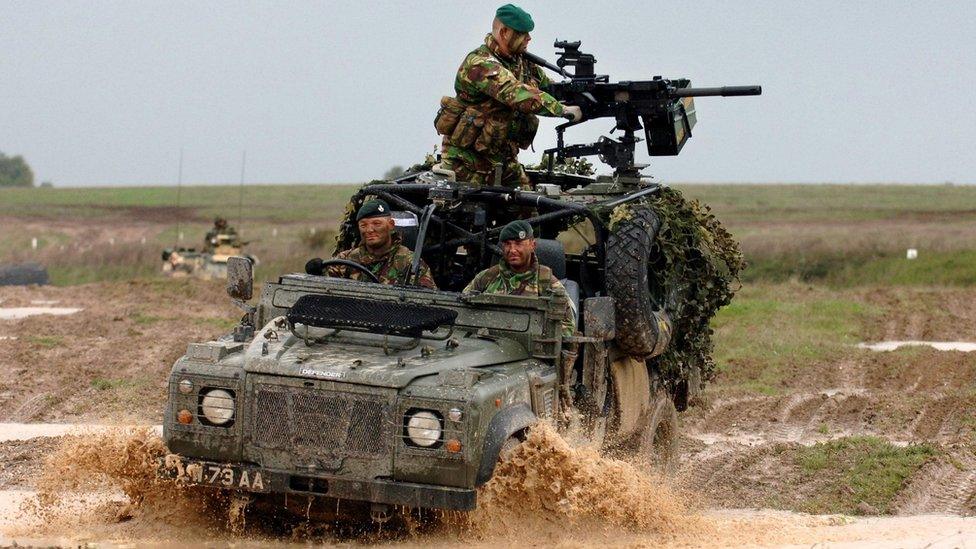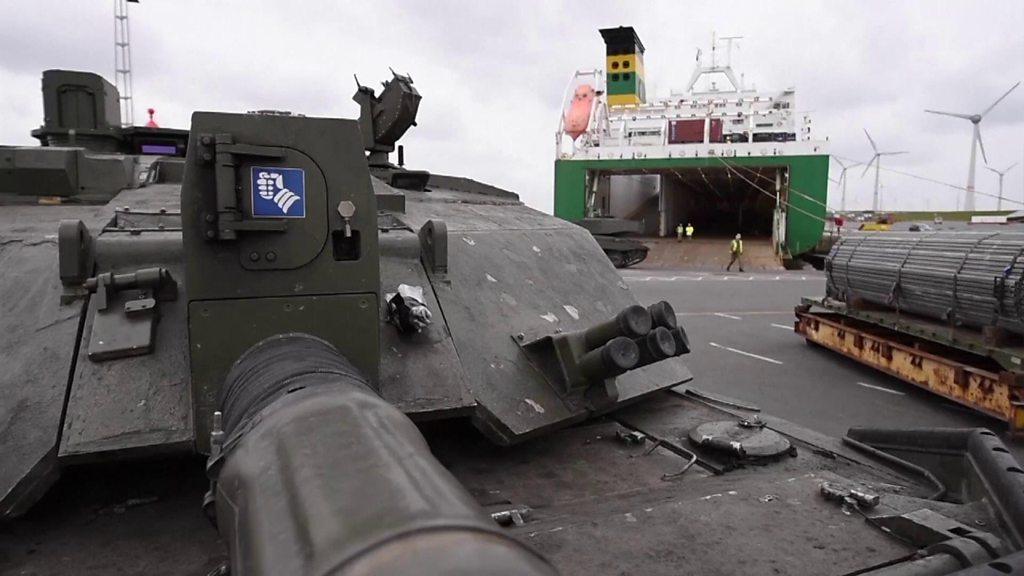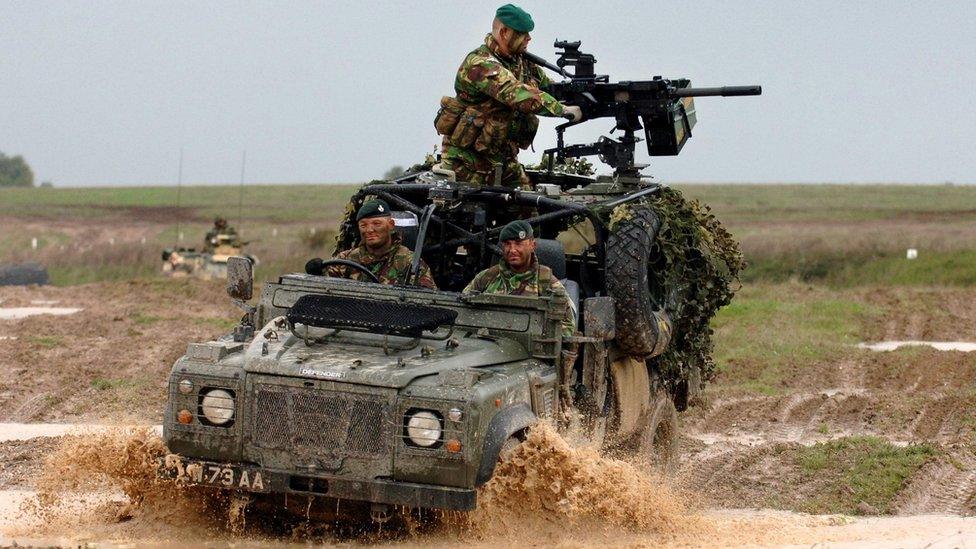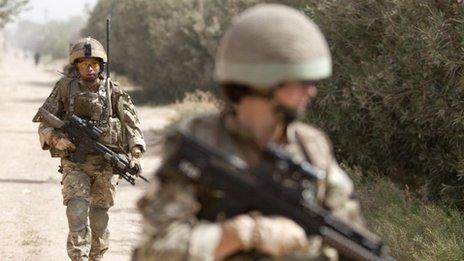Troops move to Wiltshire 'should stop' says ex-Army chief
- Published

Nearly a third of the British Army will be based in and around Salisbury Plain by 2020
An ex-military commander has called for the Army to rethink its move from Germany to the UK due to the threat of Russia since the Salisbury spy attack.
Ex-Major General Mungo Melvin said the move was based on saving money rather than a strategic approach to threat.
Some 4,000 soldiers and their families will be moving to Salisbury Plain from Germany under government plans to relocate British troops to the UK.
The Ministry of Defence (MoD) says it will not change its plans for the move.
The Salisbury attack, where a former Russian spy and his daughter were found poisoned on a park bench, has been described by Nato as part of a pattern of Russian aggression.
Mr Melvin, who lives in Chilmark, Wiltshire was a former advisor to the Government's defence committee.
'Profoundly regret'
He said the UK "should reverse" 20 Brigade's move back to the UK given Russian aggression in eastern Europe.
"We will profoundly regret for a very long time, the almost complete withdrawal of British forces from Germany," he said.
"Most of the defence spending decisions over the past 20 years, since the end of the Cold War have been based on a declining acknowledgement of a threat and the diversion of funds to other areas.
"I think there is a debate to held in the current situation."
An MoD spokesman told the BBC there were "no plans to change the Army Basing Programme and it will continue as per the schedule already announced".
As part of this project, some 900 new homes are being built in and around Salisbury Plain, as well as community facilities including schools, leisure facilities and GP surgeries.
During his career as an Army officer, Mr Melvin spent three years in charge of schools, health services, Anglo-German relations, housing and policing for British forces and their families in Germany.
"I still feel a presence in Germany would do much to reassure our allies and help the deterrents and the fact the United States is reinforcing its forces in Germany is a very good indication of what perhaps we should have done or what we might still think about doing," he added.
- Published18 March 2017

- Published13 April 2016

- Published10 November 2011
